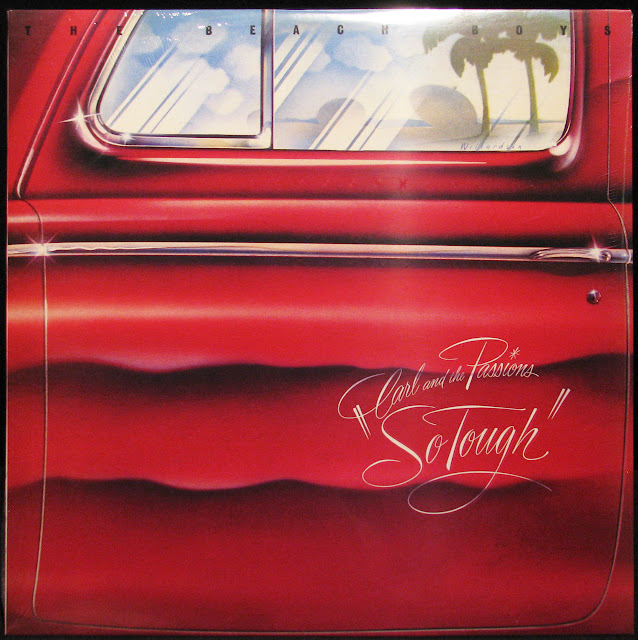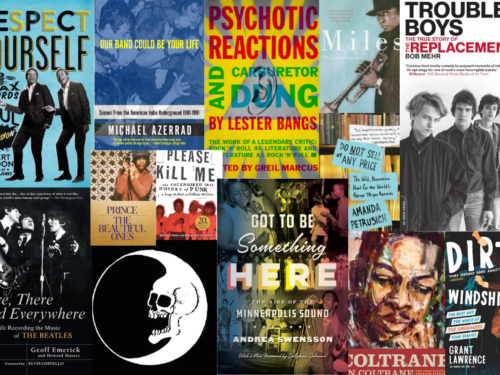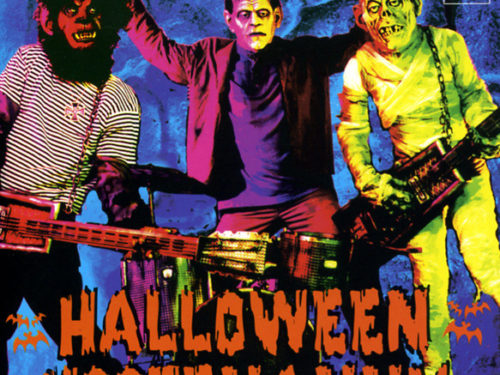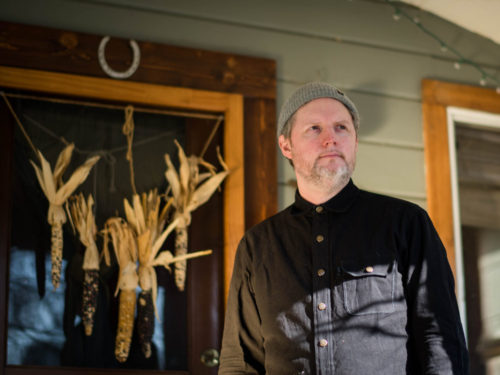When Brian left the spotlight, another Wilson brother had to step up to lead The Beach Boys
When someone thinks of The Beach Boys, is it Brian Wilson and his unadulterated genius that comes to mind first? Mike Love and his constant antics? Dennis Wilson and his tortured wildness? This is the greatest tragedy of Carl Wilson. Though many of the group’s most known and revered songs are helmed by Carl, his older brothers and cousin often overshadow him; however, without Carl Wilson it’s unlikely that The Beach Boys would have endured as a group past 1966 or much after.
The story of Brian Wilson receding into the studio and recording his magnum opus, Pet Sounds (1966), while the rest of the band continued on tour is well-known lore. While Bruce Johnston was brought in to cover Brian’s vocal parts on tour, who took over as leader of the group? It was a teenage Carl Wilson who stepped up to keep the group focused and together in his older brother’s absence. Carl, an adept guitarist, slowly began to have more of a presence over the course of the first few Beach Boys albums, earning solos and, eventually, his first lead vocal turn on “Girl Don’t Tell Me” on 1965’s Summer Days (And Summer Nights!).
Just as Carl was beginning to rise to leadership within the group in 1966, he also became one of their driving voices, lending his vocals to the ethereal beauty “God Only Knows” at a mere 19 years old. That same year, Carl would sing lead on the group’s mega-hit “Good Vibrations.” Behind the scenes, he was rising to the occasion, acting as a stabilizer among changing personnel and increasingly volatile personalities. He would fully assume this role in the years immediately following Pet Sounds as the group struggled to maintain their relevance in an ever-changing and increasingly socially conscious musical landscape.
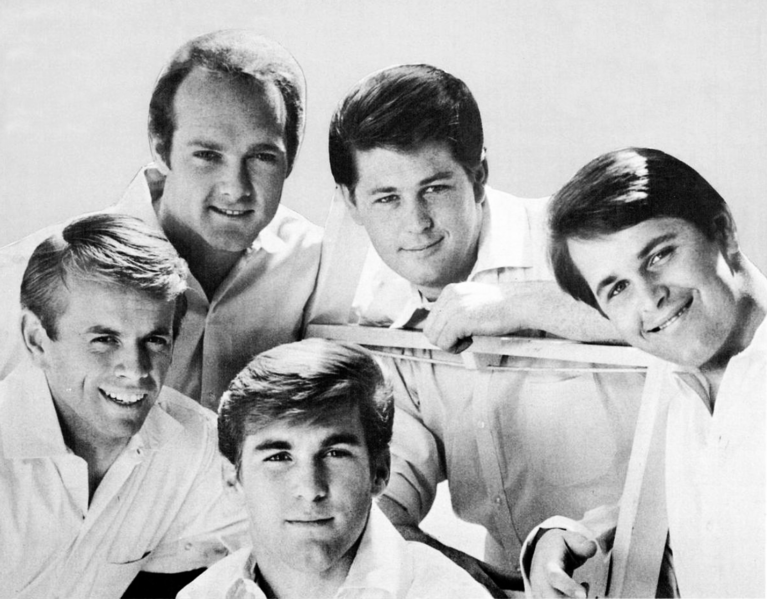
Carl sought to navigate the band through this and led them through the creation of now-acclaimed albums like 1970’s Sunflower and 1971’s Surf’s Up. While fortunes were not as favorable at the time, Surf’s Up and its lead single “Long Promised Road,” backed with “‘Til I Die,” did put the band back on the charts in 1971 for the first time in nearly two years. As Kent Crowley writes in his biography of Carl Wilson, Long Promised Road, by 1972, Carl “had established himself as a producer, composer, multi-instrumentalist, and performer. Thanks in large part to Carl, The Beach Boys finally had an album and a single on the charts. They headlined a television special, Live in Central Park on ABC TV and celebrated their tenth anniversary in Long Beach, California, the site of one of their first shows.” Carl’s success in rising to leadership in the group and navigating them to this point with a steady hand is the backdrop for the introduction of Carl & the Passions.
As The Beach Boys sought to redefine their image, which they had been relatively successful with given their recent success, they also changed their lineup. Carl had produced the second album for a band called The Flame. They broke up before the release of the album, and Carl asked the group’s drummer, Ricky Fataar, to step in for Dennis Wilson, who had recently sustained a severe hand injury. After mounting tensions with the group’s public relations man and soon-to-be manager, Bruce Johnston left The Beach Boys after seven years, and Blondie Chaplin, also of The Flame, was brought on to play guitar and bass.
Related: The Treasure Of The Oneness: Stephen Stills & Manassas by Breanna McCann
Brian Wilson was almost entirely uninvolved, as evidenced not only by Carl now making all of the personnel decisions, but also “when photographers had to montage an older photo of Brian over the new band to make it appear that he was still involved,” as Crowley recounts in Long Promised Road. If there had been any doubt before, it had dissipated by now. Carl Wilson was the de facto leader of The Beach Boys.
It is in this context that 1972’s Carl and The Passions “So Tough” arises. Now operating as the glue keeping the band together and the steady-handed captain, the album bears Carl’s name. It is now his band, not his eldest brothers’. This is clear in watching performances from the era. Even with his cousin asserting dominance and retroactively saying he was always the leader of the band, the camera always goes back to Carl, standing steadfast and confident at the center. Here we see Carl take The Beach Boys in a new direction. The result is a record that falls squarely within the category of a strangely substantial amount of Beach Boys albums — those that you either love or hate. While there seems to be a lean toward the hate or at least less favorably viewed side, So Tough is an album with more merit than it receives recognition for.
The album opens with “You Need A Mess of Help to Stand Alone.” It is a song that is constantly building up momentum and then, just as quickly as it reaches its apex, drops down again. Its elusive nature is what makes it so good, especially as an opener. Carl is front and center, coming out of the gate strong, with a solid, unified band behind him. It failed as the lead single, which is a wonder considering its dynamism and sheer catchiness.
From there, the album glides into “Here She Comes,” the first of the Chaplin/Fataar written tracks. Writing for Rolling Stone in 1972, Stephen Davis said the song “sounds like Traffic.” It is a fair point. While it is a well-produced song, it does not sound much like a Beach Boys song, feeling quite foreign. It is one of the first inclinations that perhaps Carl is more integral to their sound than listeners might have previously realized.
Next is “He Come Down,” a Jardine/Love song arranged by Brian Wilson. It blends gospel energy with Maharishi philosophy espoused by Love and Jardine. It features much of the careful instrumentation and deliberate harmonies that made The Beach Boys famous. While it is a far cry from their work from just a few years before, when it drops into that gorgeous, unified six-part harmony, there is no doubt that these are largely the same voices from “Surfer Girl” and “Wouldn’t It Be Nice.” It breaks down exuberantly at the end, in some ways representing their breaking out of their image and earlier harmony that defined them.
“Marcella,” produced by Carl Wilson, is, for many, the crowning achievement of the album. Again writing for Rolling Stone, Davis described the song perfectly: it “is in the classic mold of the best of Brian’s parking lot rockers, capturing the synthesis of the ‘so tough’ ambience of the pom pom play girl, the new girl in school, the 1972 Rhonda.” It really does have a feeling of hearkening back to their earlier days, but with the maturity and edge to their voices they had developed over the intervening years. It is truly a past-meets-present moment and deserves much of the praise heaped on it. However, despite the strength of “Marcella,” perhaps the most interesting facet of the song’s inclusion is the way it creates a particularly odd juxtaposition of tracks that highlights the contradictions in this album.
When followed with the second Chaplin/Fataar tune, “Hold On Dear Brother,” “Marcella” all of a sudden sounds like a foreign tongue. The record goes from perhaps the most “Beach Boys” song of the period to a song that feels wildly out of place on a Beach Boys album provided by the two new members who are themselves wildly out of place. In trying to identify where exactly the album struggles, sequencing is a subtle point, but one that makes all the difference.The “Marcella” and “Hold On Dear Brother” disconnect is perhaps the most stark example. None of the songs on the album are inherently bad, but they go in too many different directions. The cohesion suffers, especially when that lack of cohesion is made so evident by going directly from the extremes of a song that sounds so emblematic of the group to one that multiple contemporary reviewers claimed to mistake as a new song from The Band. Some meant it as a compliment, others as an attack. It is another moment where the listener begins to understand that perhaps they took the group, the Wilsons in particular, for granted when it came to the uniqueness of the Beach Boys’ identity and sound. It clearly wasn’t so easy for an outsider to mesh with.
“Make It Good” is the first we hear from Dennis Wilson on lead vocals. While some critics had little love for the song and Dennis’ other lead, the album’s closer, “Cuddle Up,” there is a distinct beauty in both of his contributions to So Tough. For all his wildness, Dennis was a sensitive soul. He brought immense vulnerability to his later lead vocals with The Beach Boys, with perhaps the most well-known example being “Forever” from Sunflower (1970). With “Make It Good” and “Cuddle Up,” the overpowering arrangements by Daryl Dragon and the honest, if not profound, lyrics allow Dennis’ tortured soul a few brief moments of peace within the lines of the song. Perhaps that is easier to ascertain in 2022 than it was in 1972, and maybe that is why at least “Cuddle Up” has earned somewhat of a better reputation in the five decades since.
The two Dennis leads bookend “All This Is That,” arranged by Carl. It is a gorgeous, peaceful little song, a far cry from the driving rockers at the beginning of the album, but a perfect fit between the two quieter Dennis tracks and a great call back to “He Come Down” tonally and thematically. Co-written with Jardine and Love, this is the only track on the album to feature a writing credit for Carl. It is one of the best on the album, and a true shame he did not write more for the record bearing his name, especially with a product like this to show for it.
Both “Marcella” and “You Need A Mess of Help to Stand Alone” were released as singles. Both failed to chart. The album peaked at No. 50 on the US Billboard 200. Carl himself disliked it, feeling it to be rushed. It did not help that in one of the most bafflingly shortsighted marketing decisions of all time, Warner Brothers released Carl & The Passions “So Tough” as a double album with a new mono edition of Pet Sounds. Not only did this lead to an incredibly unfair comparison of two wildly different albums — a comparison very few albums could make competitive — but it was doubly challenging for a band trying to redefine their image and for a young man trying to assert himself out of the long shadow of his older brother.
Not all responses were quite as negative or disinterested, however. Elton John later wrote very favorably about the album, saying it “is perhaps the ‘loosest’ of all The Beach Boys albums in that it has more of a band feel than the others… Carl Wilson’s hand is much in evidence here, as is his voice and the addition of Ricky Fataar, who is a superb drummer, enhances the live feeling that pervades the songs… This album is a step away from Pet Sounds but still has moments of breathtaking genius and experimentation. When this was released, I remember how different and fresh it sounded. It still does.”
Elton John captures the essence of the album perfectly. Under Carl’s steady hand, The Beach Boys create something totally new and unexpected for them. Carl dares to take the group to new places and explore new horizons. Perhaps its unpredictable nature is what truly makes it so divisive. Yet its exploration deserves commendation, not the snark and dismissal it usually receives. It takes a tremendous amount of courage to step up to fill your prodigious older brother’s place in one of the two most popular bands in the world as a teenager. It takes even more courage to lead that band through attempts to redefine themselves and adapt to a changing musical environment. Carl, cultivating his leadership in the years leading up to and after So Tough, led the group to 1973’s Holland, an album that performed relatively well on the charts at the time and was critically acclaimed upon its release and remains a favorite for many. So Tough is then not only an act of incredible courage in and of itself but it also represents the culmination of Carl’s ascendancy. Without the training ground of So Tough, there could be no Holland, and its unique place as the midpoint between Carl’s rise to leadership and his harnessing of that power to create some great late-career entries makes it worth considering. Interestingly enough, when So Tough was released on CD, it again came as a double album, but this time with Holland, creating a more apt pairing, and one that serves as a great encapsulation of Carl’s role and influence on the later years of The Beach Boys.
At this point, calling it Carl & The Passions makes complete sense. They are Carl’s Beach Boys, and So Tough epitomizes his role as guiding light and leader of The Beach Boys during this period. There is a certain irony to Carl singing that “you need a mess of help to stand alone.” In a band not known for harmonious interpersonal relationships, Carl sought to keep them together and guide them to new horizons. Carl Wilson’s story proves that yes, you do need help to stand alone, but he did it exceedingly well, and So Tough is a unique and worthwhile testament to his struggles to do so.
Stay up to date with all things Split Tooth Media and follow Breanna on Twitter
(Split Tooth may earn a commission from purchases made through affiliate links on our site.)

